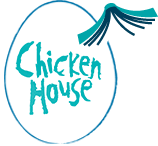Writing for Modern Teens - Top tips from Marisa Linton
Times / Chicken House award winning author and professor Marisa Linton shares her top tips for writing YA for modern teenagers below!
The Binding Spell is in the tradition of classic fantasy – the books I loved as a kid – but its lead characters are modern teenagers. For the story to work, they needed to speak like young people do now, and have the kind of preoccupations that teenagers would find familiar – family problems, lack of money, anxiety, worries about identity, friendships, relationships.
Top Tips
Writing for YA presented me with all sorts of challenges. Even my kids are in their twenties. But I spent many years in higher education. Teaching young people necessitates keeping pace with their energy, blazing honesty, and alert, enquiring minds. For any writer over the age of 25 years old, making sure you get your teenage characters right will require some extra thought and research so here are my tips for writing a novel for teenagers:
- Don’t be ‘down with the kids’, especially if, like me, you are generations older. Teenagers are quick to sniff out condescension and inauthenticity. Be your true self. Rather than crafting a book that was consciously ‘for the teens’, I wrote a story I hoped anybody – including teenagers – would find exciting.
- Teenagers could be doing a lot of other things than reading your book. You need to dive straight into your story, drawing readers in with dialogue, tense situations, characters they can identify with. Some young readers will bear with long slow developments. Most won’t.
- Some things about being young don’t change – uncertainty over identity, anger at the state of the world, intense emotions. Remember what it was like to go through those things, how it made you feel. Use those feelings.
- So many things are utterly different for today’s teenagers – the internet, social media, growing anxiety over the kind of world they will inherit. How you deal with that as a writer depends on the kind of story you’re writing. But even with high fantasy, or historical fiction, modern attitudes are going to come in. We see everything refracted through our own eyes.
- The voice is key. If you’re over about 25, you’ll need to work on that. Listen to youngsters and how they talk. If there aren’t any young generationals around you, some tv can help, though not American shows as so much about the style of speaking is different.
- Does your dialogue feel natural, like the sort of thing teenagers might say? Speaking it aloud helps.
- Slang is a tricky one. Don’t try too hard to be up to date, because it can feel fake and may date quickly. Put in just enough that it sounds fresh without seeming contrived.
- In the first versions of The Binding Spell my teenage characters didn’t swear. That had to change. To be ‘real’ they had to know the sort of words that British teenagers know – and use them.
- Beg or bribe youthful people to read your dialogue and to be frank about anything that sounds jarring or dated. Some of the funniest and enlightening debates I had with my kids were about the phrases their generation uses.
- Technology changes so fast, as do cultural references – what people watch, what they listen to – so I was deliberately vague about that.
Marisa's novel THE BINDING SPELL is out now; find out more here!
New books: May 2025
In a month of sequels and standalones, we have three exciting magical mysteries coming to you this May ... (more…)

